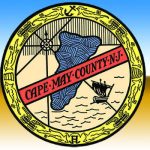CAPE MAY – Cape May City Council considered a resolution Sept. 17, which would have imposed the requirements of the Open Public Meetings Act (OPMA) on the city’s 14 advisory committees.
It was the latest attempt by Council members Zack Mullock and Stacey Sheehan to establish a set of uniform rules for the organization and running of the committees.
City Solicitor Frank Corrado warned against approval of the resolution, saying that imposing the constraints of the OPMA on advisory committees would limit the committees’ flexibility concerning scheduled meetings and agendas.
He also expressed concern that the committees might see the move as one that opened the door for closed non-public sessions, a defined process in the OPMA. Lastly, Corrado noted citizens can sue over violating the act, under the OPMA.
Mullock accused Corrado of undermining the vote on the resolution with Corrado’s opening remarks. Corrado said he felt a reasonable protocol could be established and imposed on the committees by the council, without resorting to using the OPMA.
The resolution was defeated 3-to-2, with Mullock and Sheehan voting for it despite Corrado’s concerns.
That 3-to-2 vote has been a common outcome when Mullock and Sheehan have proposed resolutions dealing with the advisory committees. The two often vote together, and just as often, are on the losing side of split votes.
There has been no occasion where a 3-to-2 vote had Sheehan and Mullock in the majority. The one exception was a vote to bring a resolution off the table, which eventually lost 3-to-2.
Mullock later lamented that no proposal he has brought forth since being elected to the governing body has received an affirmative vote.
Whether the issue debated is the role and functioning of the advisory committees, the design of the proposed public safety building, the movement of a branch of the county library system into the Franklin Street School, the selection of the architecture firm for the public safety building, or the appointment of individuals to committees and commissions, the lack of unity or even compromise is apparent.
William Seeger and Wister Dougherty urged council to find ways to work together.
“You don’t get to decide who you work with on council because the people do that, but you do get to choose whether you can work together,” Seeger said.
Dougherty reminded council members of the comments made by Dennis Crowley at the Aug. 20 meeting, when Crowley spoke of visible “tension in the council.”
Crowley pointed to the proposed public safety building as an issue where council spent more time in debate about the role of the advisory committee on the building than on the details of the building itself. He worried that the divisions on the issue would lead to the same animosities in the public that arose out of the process to build Convention Hall.
“Take charge of these issues as public officials,” he urged. It was the same advice given by Jerry Gaffney, the advisory committee chair, before his death.
Gaffney previously said it was time for council to take charge of the process. Thus far, council has avoided direct oversight of the process.
As for the divisions on council, one solution Seeger offered was a retreat.
“Someone needs to call a retreat for this group,” he suggested. “You need to think about how you can work smoothly together,” he added.
To contact Vince Conti, email vconti@cmcherald.com.







